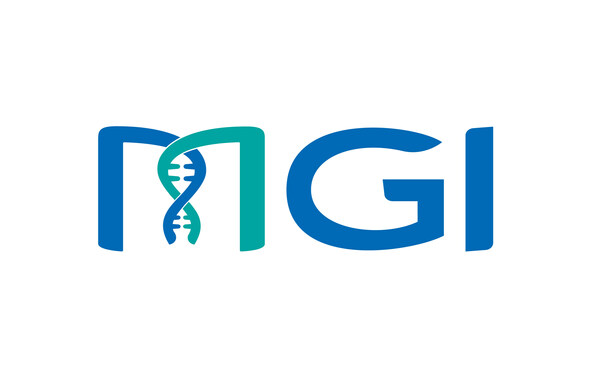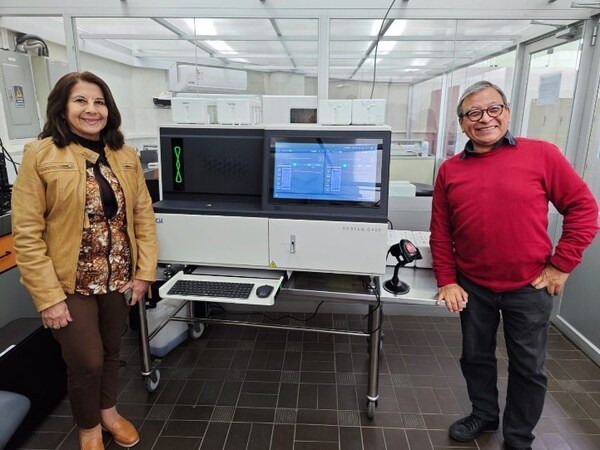
The implementation of MGI Tech's next-generation genomic sequencing (NGS) technologies will strengthen scientific research in the country,enabling the identification of key genetic variations,contributing to disease prevention,and personalizing medical treatments.
A team of specialists from USMP will work on advancing five research projects focused on rare diseases,infectious diseases,cancer,pharmacogenomics as well as understanding the genetics of native communities.
LIMA,Peru,Dec. 2,2024 -- MGI Tech Co.,Ltd. ("MGI"),a company committed to building core tools and technologies that drive innovation in life science,announced a partnership with the Universidad de San Martín de Porres to strengthenhuman genetics research through the implementation of next-generation genomic sequencing (NGS) technologies in the laboratory in the laboratory of the university's Genetic and Molecular Biology Research Center. This advancement will enable the identification of genetic risk factors in the population for the development of future public health treatments.

Dr. Ricardo Fujita in his lab with MGI's DNBSEQ-G400sequencer
Carlos Carpio,Commercial Director for MGI Latin America,highlights that this partnership is a milestone will significantly enhance genetic research in the country by enabling large-scale studies of human genomes,exomes,and metagenomics with more speed and precision in Peru and Andean countries."This technological upgrade will allow for the complete automation of the process,from sample preparation to bioinformatic analysis. The implementation will not only reduce research times and costs but also democratize access to this technology in the country,providing more opportunities for training highly specialized professionals in genomics and bioinformatics."
The laboratory is equipped with the DNBSEQ-G400RS sequencer*,the MGISP-100 automated library preparation system,and MGI's MEGABOLT bioinformatics accelerator,which will enable USMP researchers to carry out advanced studies with precision and speed.
Dr. Ricardo Fujita,Director of the Research Institute and investigator of the Genetic and Molecular Biology Research Center of the Faculty of Human Medicine at the Universidad de San Martín de Porres,points out that Peruvians and Andean populations are part of the 80% of global populations that are not represented in medical and genomic studies.
"The lack of inclusion limits the ability to identify the genetic causes of various conditions such as rare diseases,or diabetes,or responding adequately to drugs,making it difficult to treat them in a personalized and effective way."
A recent study by the Universidad de San Martín de Porres reveals that the average indigenous genetic heritage of the Peruvian population is 70%,underscoring the need to investigate specific genetic characteristics for the study of diseases and the development of more precise treatments.
Thanks to this advanced technology,Dr. Fujita,along with seven researchers from the university,will lead five ambitious research projects:
Rare diseases: Focusing on neurological,neuromuscular,ocular,dermatological,autism spectrum,and developmental conditions.
Cancer: Over the next two years,they will analyze 200 cases of sporadic cancers (without family history or hereditary mutations) to study hereditary predispositions and explore genetic and epigenetic markers.
Immunogenomics and pharmacogenomics: Genetic variants in the Peruvian population that influence susceptibility and resistance to infections will be investigated.
Genetics of native populations: In four years,1,000 genomes from South American native populations will be contributed to open databases,helping build a Peruvian BioBank.
Metagenomics: 1,000 metagenomic samples will be analyzed to study microorganisms causing infectious diseases,especially transmissible ones,and the normal human microbiome in the Andes and Peruvian Amazon over the next two years.
Dr. Fujita highlights that,with the implementation of this technology,the university will be able to collaborate closely with hospitals and academic institutions in researching diseases prevalent in Peru and neighboring countries. "The incorporation of MGI Tech's state-of-the-art equipment will promote a significant advance in genetic research in the region. This will make it possible to identify genetic risk factors specific to our population and contribute to the development of personalized treatments tailored to local needs."
Furthermore,the expert predicts that this technology will strengthen the training of future professionals in genetic medicine and molecular biology. "This initiative positions USMP as a leader in genomic research in the region,driving the development of personalized medicine and contributing to a better understanding of human health."
*For Research use only and not for use in any diagnostic procedures.
About MGI
MGI Tech Co.,Ltd. (or its subsidiaries,together referred to MGI) is committed to building core tools and technologies that drive innovation in life science. Our focus lies in research & development,manufacturing,and sales of instruments,reagents,and related products in the field of life science and biotechnology. We provide real-time,multi-omics,and full spectrum of digital equipment and systems for precision medicine,agriculture,healthcare and various other industries.
Founded in 2016,MGI has grown into a leader in life science,serving customers across six continents and have established research,training,and after-sales service facilities globally. MGI stands out as one of the few companies capable of independently developing and mass-producing clinical-grade gene sequencers with varying throughput capacities,ranging from Gb to Tb levels. With unparalleled expertise,cutting-edge products,and a commitment to global impact,MGI continues to shape the trajectory of life sciences into the future. To learn more,please visit https://en.mgi-tech.com/, LinkedIn, X,and YouTube.
© OfficialAffairs